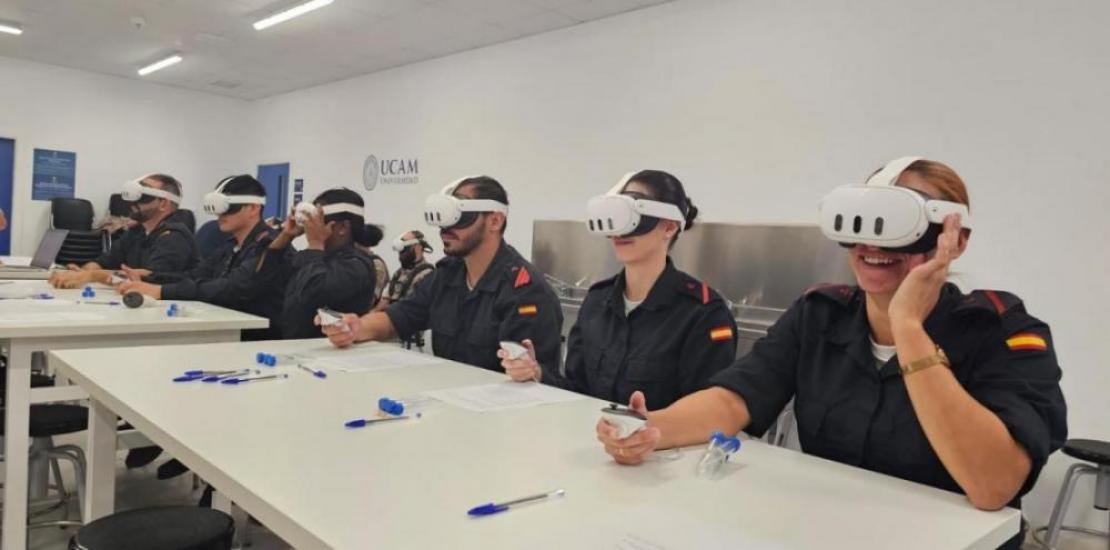UCAM places virtual reality at the service of the Army to save lives
The project, developed by the New Technologies for Health group together with the Marine Infantry School 'General Albacete y Fuster' in Cartagena, uses immersive simulation and neuroscience to prepare military personnel in tactical medicine and combat emergencies
Virtual reality has become a training tool for the Marine Infantry School 'General Albacete y Fuster' in Cartagena thanks to an initiative developed by the UCAM. Through its headquarters in Cartagena and the New Technologies for Health research group, the institution has designed a pioneering training programme that combines immersive simulation and neuroscience to prepare military personnel in tactical medicine and emergency management in combat.
This project, promoted by Professor Manuel Pardo, director of the New Technologies for Health group, arises from the conviction that the experience accumulated by the University in the use of immersive technologies can also contribute to improving training in the military field. Pardo assures that ‘this training can be a lever for improving the preparation of health personnel in highly demanding contexts, such as the military’.
During the sessions held in Cartagena, the participants worked with virtual scenarios previously recorded at the Marine Corps School, recreating real emergency and health care situations in combat. Nereo Venero, a nurse captain in the military health corps, underlined the impact of the project: ‘Thanks to virtual reality, many people can face serious situations for the first time, such as a haemorrhage or cardiorespiratory arrest, in a controlled environment’.
This research is also part of the doctoral thesis being developed by Carmen Amalia López, which focuses on the use of neuroimaging applied to training in virtual reality environments. Its aim is to analyse how the brain reacts to controlled stress experiences, identifying neural patterns that allow training programmes to be refined. She explained that ‘we measure physiological and neurological parameters, such as stress level or sustained attention to analyse how they respond to a high-pressure experience and improve the quality of training’.
This research is part of a stable line of collaboration between the UCAM and the Armed Forces, which in recent years has also been extended to other intervention bodies such as fire brigades and emergency services. This cooperation makes it possible to transfer advances in simulation and neuroscience to real-life contexts, improving the preparation of professionals working in high-risk situations.




